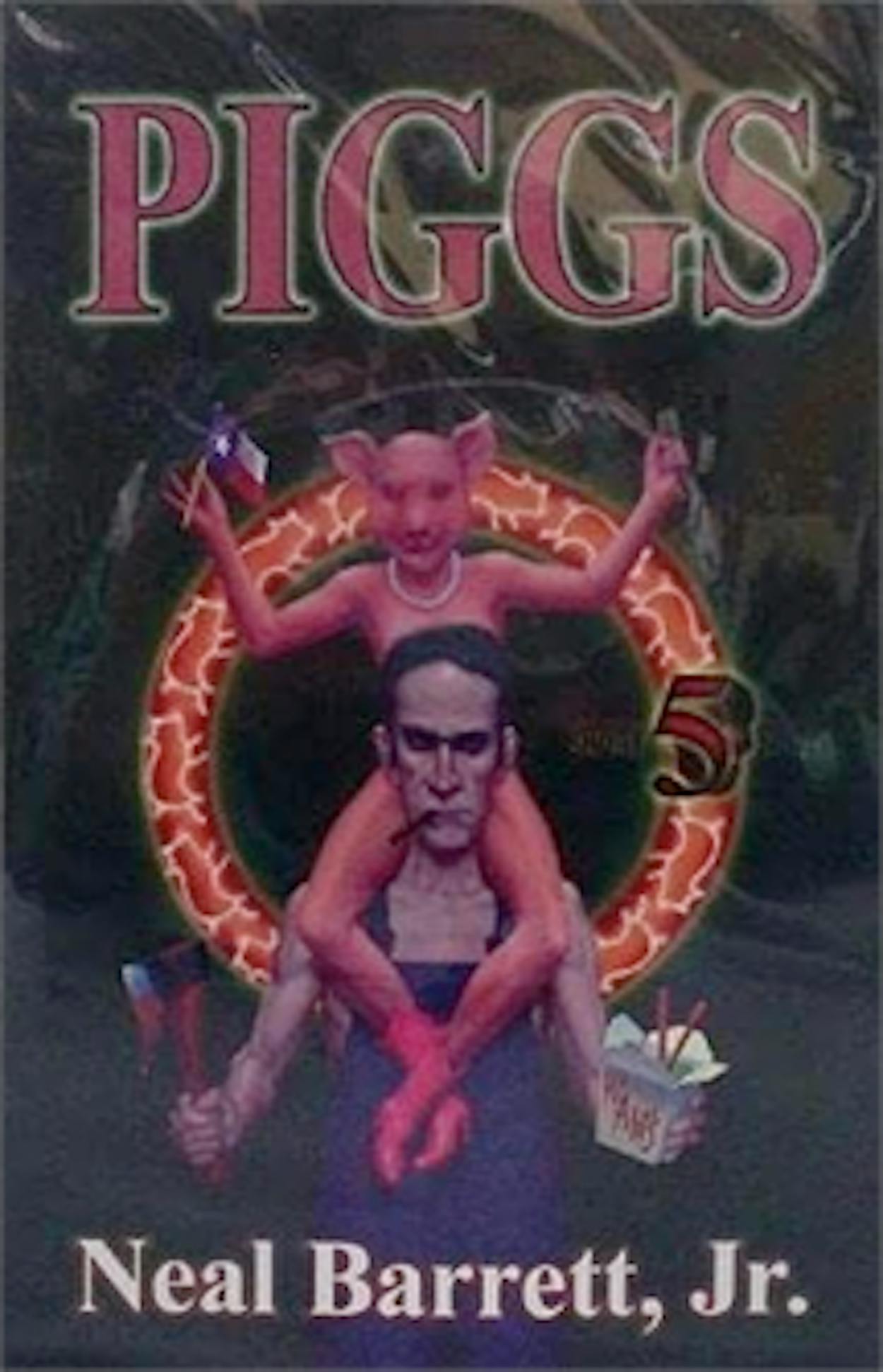Author of everything from mystery to science fiction, the writing of Neal Barrett, Jr. transcends categorization. Some say his books are weird. He says life is weird. Read on to find out what else this author has to say.
texasmonthly.com: Your stories are pretty off-the-wall. How do you cook up your ideas?
Neal Barrett, Jr.: I always answer that “off-the-wall” bit with another question: Why is the world off-the-wall? Hey, it’s them, not me. All I do is write what I see. Some time ago, my wife and I lived in a very respectable apartment in a big city in Texas. When the woman upstairs got mad at her husband, she would tear up all his money in confetti-size bits and toss it over her balcony.
Later, the cops came and rescued franchise waitresses who had been held up in this apartment against their will. When I walked to the laundry room at this place, I would always pass a window where a middle-aged couple played cards in their breakfast room—stark naked. Why? This was a very nice apartment complex. God knows what went on in the bad part of town. The point here is that this was one small incident in one place.
It all started when my father gave me a rabid puppy for my fifth Christmas. It gets bizarre after that, which means I could go on with this topic for some time. I have written about small-town gangsters, truckers, terrorists who keep goats in their hotel suite; and hookers who don’t. I’ve written about crazed advertising executives, lawyers, doctors, wealthy manic preachers. And, even, crooked CEOs. Off-the-wall? You betcha!
texasmonthly.com: When you are writing a new piece, do you start out with a clear outline of the story, or do you let it take shape as you go?
NB: I start with a broad outline, an idea. A book never turns out that way. It develops and (I think) gets a lot better as it begins to come alive. Usually, it wanders off in some other direction. What remains consistent is the basic concept—what I wanted to say when I got the idea.
texasmonthly.com: People say your work falls into a category all its own. What would you call this genre?
NB: The Neal Barrett, Jr., genre? I can’t help it. It’s just what I do.
texasmonthly.com: On your Web site, Science Fiction author John Clute is quoted as saying, “Barrett is funny, Texas-funny—” What is the difference between funny and Texas-funny? What do you think defines Texas humor?
NB: This question, and the next one can both be answered here. Where you grow up, the culture and the people obviously have a lasting influence on your writing. Do I write Texas-funny? Yes. Texas-and Oklahoma- funny too. I grew up in both states. Other writers tend to be influenced by their own states. Writers from Florida write Florida -funny. Californians write California -funny. I guess there’s even Vermont-funny. ({Side note: New York editors call people who live in places like Florida, California, Texas, and Vermont, “regional writers.’” We call N.Y. editors New York-funny.)}
texasmonthly.com: A lot of your stories are set in the future. Are these works commentaries on where you think our society is headed?
NB: Most of my science-fiction and fantasy stories tend to be rather dark, laced with dark humor, about fairly dark futures. I do think society is headed in an alarming direction. This is not entirely based on personal wisdom. Much of how I picture the future is based on the present—and certainly the recent and distant past. For tales more frightening, or more far-fetched than mine, or any other science-fiction writer, stay tuned to the evening news.
texasmonthly.com: You’ve written over 50 fifty novels and countless short stories. Do you have a favorite?
NB: The Hereafter Gang. Every writer would like to be remembered for one particular book. I’m forever proud of this one.
texasmonthly.com: You did a novelization of the motion picture “Dungeons and Dragons.” This is somewhat unusual as it’s normally the other way around (book to movie). What prompted this idea? Can you talk a little bit about the process?
NB: This isn’t really unusual at all. The movie people send you a script. You adapt it to book form. The producers’ purpose in this is to call attention to the movie. If you see the movie, maybe you will read the book. If you read the book, maybe you’ll see the movie. Writers do novelizations because the pay is usually pretty good. Would we do this if we had a billion-dollar best-seller that year? No, of course not. But some of the best talents in the business have done a few, and still do.
texasmonthly.com: Your newest book, Piggs, is being featured at the Texas Book Festival. What can readers expect from this one?
NB: If the “Sopranos” wore overalls and didn’t like shoes, they’d live in Mexican Wells…
If Jack hadn’t screwed up a no-brainer holdup in Amarillo, if he hadn’t gotten high with a long-legged Oklahoma girl—hey, if he’d ever done anything right, he wouldn’t have ended up in the Huntsville pen. He sure as hell wouldn’t be washing dishes in a dump like Wan’s. The good news is, Wan’s is next door to Piggs, where Jack’s beloved, Gloria Mundi, takes it off every night. The bad news is, redneck mobster Cecil R. Dupree runs Piggs and wants Gloria for himself. That’s a start.
texasmonthly.com: If you weren’t a writer, what would you be?
NB: This is the one question that always stumps me. I have never been able to even imagine a good answer.







